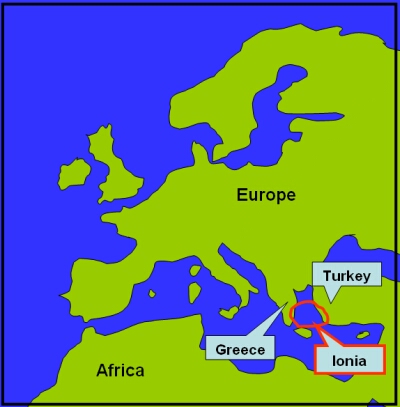Ionian Philosophers

Ionia was the name given to the island realm in the Aegean Sea between Greece and Turkey. It has the distinction of being the birthplace of Western science and philosophy. Rather than relying on supernatural explanations for the appearance of the Sun, Moon, planets and stars, the philosophers attempted to understand nature and looked for laws that described its behaviour.
The recorded history of Greek philosophy actually began in Miletus, on the coast of Turkey (Asia Minor). Here, in the 6th century BC, Thales, Anaximander and Anaximenes developed their ideas about the Universe. This trio of early scientists were materialists: they believed that the Earth and everything else in the Universe was made from a material (rather than spiritual) substance. However, their opinions differed as to what this substance was. Thales believed it was water, Anaximander asserted it was ‘the Infinite’ and Anaximenes proposed that it was air.
Pythagoras (560-480 BC) studied under Thales before traveling to Egypt and Mesopotamia, ultimately establishing his own school of philosophy in Croton (southern Italy).
Following on from the Milesian school were 5th century BC philosophers such as the Eleatic School (Xenophanes, Parmenides, Zeno), the later Ionians (Heraclitus, Empedocles and Anaxogoras) and the Atomists (Leucippus and Democritus).
The Ionian philosophers are also refered to as pre-Socratic philosophers, as much of their work was completed before the time of Socrates (469-399 BC).
Study Astronomy Online at Swinburne University
All material is © Swinburne University of Technology except where indicated.

